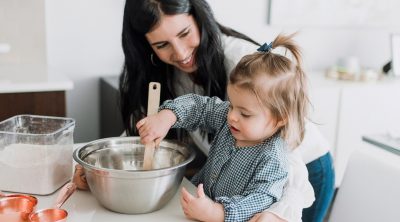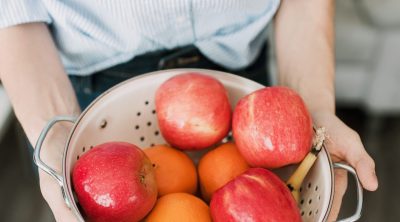
If the kitchen is the heart of the home, then cooking is the key to good health. Food is what nourishes our cells and meals shared at the family table are what feed our soul. This is why building confidence in the kitchen is a must for healthy bodies and minds.
To build this confidence though, your recipes must turn out right. So today, we’re going back to basics as I share a few basic tips to help you nail your recipes every time.
How to read a recipe
Read the recipe entirely and ahead of time
Skimming through a recipe without taking a proper inventory may come back to haunt you. Here are some things to keep in mind:
-
Ingredients: Double-check your fridge and pantry. Take note of what you have on hand and what you need to buy.
-
Equipment: Are there special appliances or tools required for the recipe? What size bakeware do you need? Using a 10-inch baking dish when an 8-inch one is required can dramatically change the cooking time and result of your recipe.
-
Cooking time: Does the recipe call for marinating? Refrigerating? Take note of the required cooking time while being mindful, these are estimates as not everyone chops at the same speed. Give yourself extra time so you aren’t rushed.
Prepare the ingredients
Did you know that the ingredients in a recipe are listed in order of use? Once you measure and prep your ingredients, you can easily run through them all to make sure you haven’t missed a thing.
Measure it right
- Pay attention to the wording. If a recipe calls for “1/4 cup of chopped parsley”, you must chop the parsley before measuring it. If however, the recipe calls for “1/4 cup parsley, chopped” measure the parsley first, then chop it. This comma may seem insignificant, but it can make a difference.
- Use the right measure: An example of a common cooking mistake: measuring flour in a liquid measure and oil in flat measure. Flat measures are meant for dry ingredients (think flour or oatmeal) while liquid measuring cups (with handles and spouts) are meant for liquids. Not only is it easier to handle ingredients with the right measure, but you will also get a more accurate reading.
Use the right ingredient
-
Many ingredients can be substituted without affecting the end result of a recipe. If you’re unsure, contact the author and ask them (thank you social media)!
-
If a recipe calls for a certain type of salt, don’t deviate. The amount of sodium (and the saltiness) can differ if you’re using table salt instead of a coarser salt like kosher salt. Same goes for herbs and spices. Dried forms of these will be much stronger than their fresh counterparts. Finally, if eggs are called for in a recipe, large eggs are the standard size. Using extra large or medium eggs may affect your end result.
Do you have any tips for nailing your recipes every time?
Share your tips below!





Leave a comment